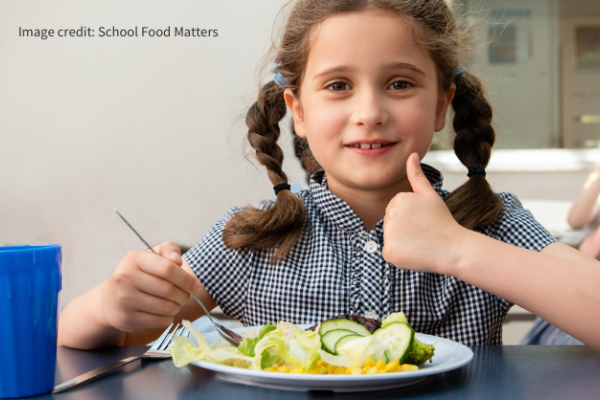A nationwide school food plan should be put in place to ensure that both eating and learning about food at school reflect healthy and sustainable dietary guidelines. Specifically, this would mean setting well developed, strong standards for school food and delivering a comprehensive food education throughout the school curriculum. Government should take steps to mainstream and integrate progress achieved in individual schools through successful initiatives to improve school food, such as Food for Life or Meat Free Mondays.
Better standards for school food are needed to ensure that school food procurement processes deliver for health and sustainability. The foods served at school throughout the day should be consistent with the food-based dietary guidelines and model healthy and sustainable patterns of eating, reflecting and reinforcing what is learned in the classroom. Schools should be supported to translate school food standards into procurement contract language where necessary, including specifications and other considerations for key food groups and nutrients as well as specifications regarding sustainable sourcing, food preparation and the catering service in general.
Food system education should be integrated across the school curriculum, in ways that meaningfully link the classroom with how food is grown and consumed, particularly in the school canteen. Learning outcomes should focus on the broader impacts of different foods and production systems, including on greenhouse gas emissions, freshwater, land use change and biodiversity loss, and include exploring the steps that can be taken to mitigate those impacts and improve the food system. Food education should also aim to support the development of healthy, sustainable eating habits through practical experiences and skills, including growing and cooking food, eating seasonably and choosing a healthy diet.



